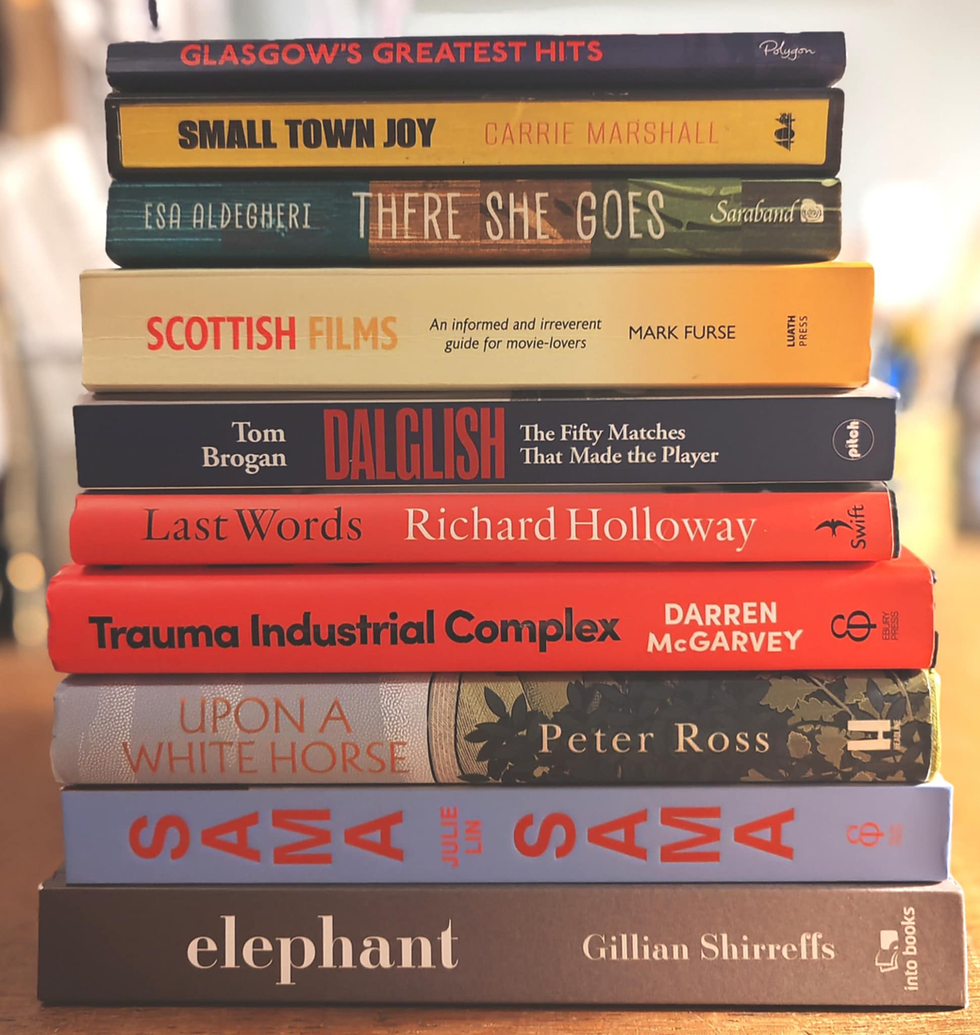You Have Been Watching…A Shot at Glory
- Alistair Braidwood

- Sep 6, 2010
- 3 min read

I’m not a great fan of that widely used term ‘guilty pleasure’. I think if something gives you pleasure then feeling guilt over it can only cause you problems in the long run, as the history of Scotland has adequately shown. Who cares if you have a soft spot for late 70’s American disco, often watch ‘antique’ TV or enjoy The Chronicles of Riddick of an evening? Whatever gets you through the night, it’s alright. However, even though I feel no guilt at enjoying this week’s film A Shot at Glory, I’m at least aware that I probably should.
Let me put this into some sort of context. It is not the film alone that I enjoy when I watch it, it’s all the things that surround it. Some personal, some shared. For those of you who have never heard of the film I’ll give a brief synopsis:
There once was a small football team called Kilnochie. They languished in the lower leagues and had a stadium and following to match. The team is made up mostly of Airdrie and Raith Rovers players of the time (including current managerial darling Owen Coyle, ‘keeper ‘Mad’ John Martin, Andy ‘Ears’ Smith and ‘Slinky’ Peter Hetherston). It is managed by Gordon McCloud (played by Robert ‘Colonel Kilgore’ Duvall) who is forced by his American owner (Michael ‘Batman’ Keaton) to accept the signing of fading superstar, and ex-Celtic hero, Jackie McQuillan (‘Super’ Ally McCoist. You’re right, it is odd) who also happens to be McCloud’s estranged son-in-law whom he despises. They have to win the Scottish Cup or Batman will move the team to Dublin, where they will apparently be made welcome. So the Colonel and Super Ally have to put aside their personal grievances if they are to save Kilnochie.
I have made none of this up, and that is only the half of it. Here’s the trailer to prove it:
The storyline is really unimportant, and after the recent heroics of Gretna and Queen of the South in the cup it is more realistic than it seemed at the time of release in 2000. The reasons for my soft spot for the film are quite a few. The year it was being filmed became a surreal one in Scottish football. Pictures of Robert Duvall outside stadiums with various scarves, some less than PC, began to surface. Journalists were falling over themselves trying to get a part in the film, and those who made it include Andy Gray and big Jim Traynor. Referee Hugh Dallas got to play referee ‘Hugh Dallas’, and Brian Cox was cast as the manager of Glasgow Rangers and plays him as a mix of Walter Smith, Dick Advocaat and Hannibal Lector. Strange days indeed.
Personally speaking, one of my best friends was involved in this film, which meant I was duty bound to be one of four people that saw it in the cinema one evening. It was there for a week before it was gone. Perhaps this lack of interest was not so surprising as the real drama had already been in and around Glasgow the previous year when A Shot at Glory was in production. I will always remember the time that Michael Keaton came into the bar I was working in for a few beers on a quiet Wednesday night, then watching the place slowly fill as word got round that Batman was in the vicinity. Fair play to him, he signed bits of paper and bought the staff a drink. After all the glamour of having Oscar winners and proper movie stars around the place, the film itself became an afterthought.
Be in no doubt, this is not a great movie. It says something that McCoist is perhaps the best thing in it. Duvall’s performance is so idiosyncratic that I sometimes can’t decide if it is actually brilliant, or as terrible as it appears. I suspect the latter. Keaton seems to be in a different film altogether and the mix of first division footballers and well known Scottish character actors such as Bill Murdoch and Ida Schuster is just surreal, at least to those of us who are fans of both football and film. A Shot at Glory is that age-old underdog against the odds story that we have seen before many times, but if you are a fan of Scottish football and the madness that surrounds it, then this really is a must see.









Comments